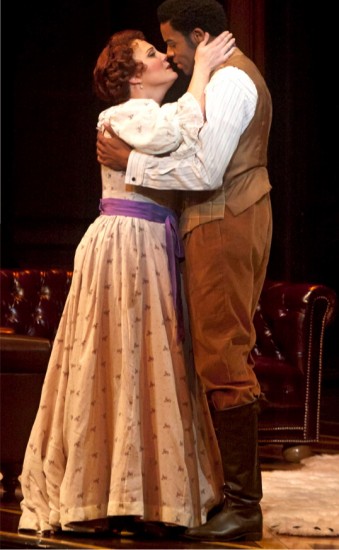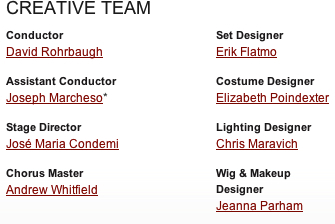Our church service each Sunday includes a section called “Caring and Sharing” at which we are invited to share our “Joys and Sorrows”. Well, what happened to me after the service last Sunday, February 12 2012 was both a Joy and a Sorrow. The Joy was seeing and hearing Rebecca Davis as Violetta in Opera San JosÉ’s production of La Traviata by Guiseppe Verdi. The Sorrow was that we had to leave the California Theatre at the end of Act II because I had a previous commitment to be God in a little skit at the Universalist-Unitarian Church in Palo Alto at 6:15 that evening – and opera didn’t end until almost six pm 20 miles away!
I’ll tell you some reasons in a minute, but the first thing I did when I got home Sunday night was to check our calendars and order two tickets for the final performance on Sunday, February 26 where we can see Rebecca Davis in all four acts.

Marie Duplessis aka Alphonsine Plessis (real name) (January 15, 1824 - February 3, 1847); Watercolor of Marie Duplessis at the theatre, by Camille Roqueplan: photo courtesy Wikimedia Foundation
In the pre-opera talk, General Manager Larry Hancock filled us in on the true-life stories of Marie Duplessis and Alexandre Dumas, fils, and the times in which they lived. Let me start by giving you my impression of European life in the first half of the 19th century. Then, as now, there were two sexes – male and female. You were born of one sex, you lived as that sex, and you died that sex. But just as rigidly, there were two classes – elite and common – and the class you were born in was the class you lived in and the class you died in. As many operas tell us life was no bed of roses for an elite girl; she was a slave to her father until she became a slave of her husband. But although she had no freedom of choice, she usually had plenty to eat, a warm place to sleep, and a certain amount of material riches at her disposal. Far worse was the plight of a common girl. She might end up in a dismal conjugal relationship, her very existence dependent on the whim of her mate. She might become a “shop girl”, her very existence dependent on the whim of the shop owner. She might become a prostitute, her very existence dependent on the whims of a myriad of men. Or, if she were pretty and smart and lucky she might become a courtesan, totally dependent on the whims of an elite gentleman. Indeed, if she were pretty enough and smart enough and lucky enough and played her cards right, she might even gain a limited independence by threatening to leave her current “sponsor” in favor of any number of others eager for her favors.
The real Marie Duplessis and the fictional Violetta of Act I were the crème de la crème of Paris courtesans. But everything they had was obtained and maintained by pleasing MEN. Sure, they could pamper themselves with material wealth – but only by pleasing a man. And there was something subtle in Davis’ acting that made me acutely aware of Violetta as a whole person with a real history and a real environment – I can’t recall having that feeling at any previous performance.
Words fail me when I try to describe Rebecca Davis. She wasn’t acting an operatic role; she was channeling the famous Parisian courtesan, Marie Duplessis. She wasn’t just singing with perfect voice and clear articulation; she was using Verdi’s glorious music as a natural aid to communication. She totally dominated Act I without seeming to be the least bit aware of the fact. I almost felt sorry for Michael Dailey in the role of Alfredo. A pleasant young man with a charming manner and a good voice, but just not in the same league.
Act II of La Traviata is one of my favorite acts in all dramatic opera. I have always felt that if the story were to end here, all three of the major characters would deserve the worst that fate could give them. I have ranted before about what I think of Alfredo’s father, Germont – a self-righteous prig if ever there was one. But I was also disgusted by the way Violetta gave in to his outrageous demands. As for Alfredo, he didn’t love Violetta as a person – he loved being loved by Violetta and when that apparently changes he wants to get his revenge.
But Sunday afternoon it was different. The Violetta of Rebecca Davis could not have acted otherwise. For a quarter of a century every experience has taught her that only by pleasing men could her life be bearable. Germont’s selfish and unreasonable demands have merely verified the fact that her idyllic happiness of the past three months was “too good to be true”.
As for the two Germonts, father (Evan Brummel) and son Alfredo (Michael Dailey), the jury is still out. I have to wait until I’ve seen Act IV on the 26th. To further confuse my emotions, this Sunday, February 19, I will see the other cast sing the exact same production. Ciao for now, but I’ll be back.
2149 Paragon Drive
San Jose CA 95131-1312
408-437-4450
345 South First Street
Betw San Carlos & San Salvador
Downtown San Jose

This review by Philip G Hodge appeared in sanfranciscosplash.com on February 15, 2012.






